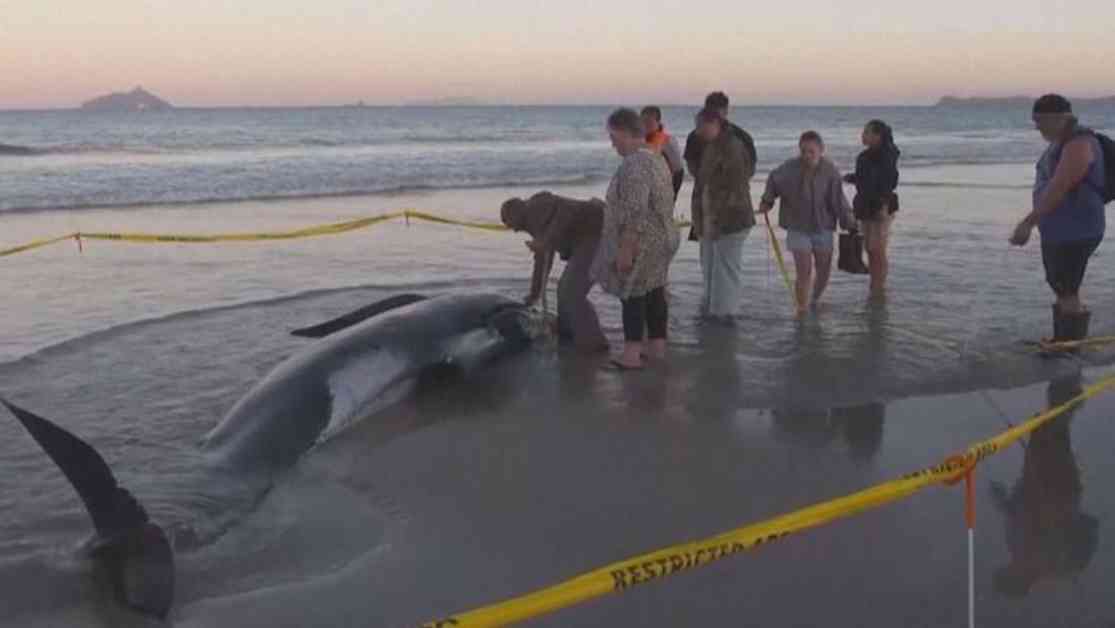A group of over 30 whales were found stranded on a beach in New Zealand, prompting a massive rescue operation to safely return them to the sea. The whales, believed to be pilot whales, were discovered by local residents who immediately alerted authorities.
Rescue teams worked tirelessly to keep the whales hydrated and comfortable while they awaited high tide to help refloat the stranded mammals. Volunteers from the local community also joined efforts to assist in the rescue operation, showing great compassion and dedication to saving the stranded whales.
Marine biologists and experts were on-site to assess the health of the whales and ensure they were fit to be released back into the ocean. It is still unclear why the whales became stranded in the first place, as pilot whales are known to be highly social animals that travel in close-knit pods.
While the rescue operation was successful in returning the majority of the stranded whales back to the sea, unfortunately, not all of them survived. Despite the best efforts of the rescue teams, some of the whales were too weak or injured to be saved.
This unfortunate event serves as a reminder of the threats faced by marine life in our oceans. Pollution, climate change, and human activities all pose significant risks to whales and other marine animals. It is crucial for us to continue working towards conservation efforts and protecting these magnificent creatures.
In the aftermath of the whale stranding, local authorities have urged the public to report any sightings of stranded marine animals promptly. Early intervention can make a significant difference in saving the lives of these animals and preventing further tragedies.
As we reflect on the successful rescue operation and mourn the loss of some of the stranded whales, let us also remember the importance of protecting our oceans and the precious marine life that inhabits them. Together, we can make a difference in ensuring a safe and sustainable environment for all creatures, both on land and at sea.

















